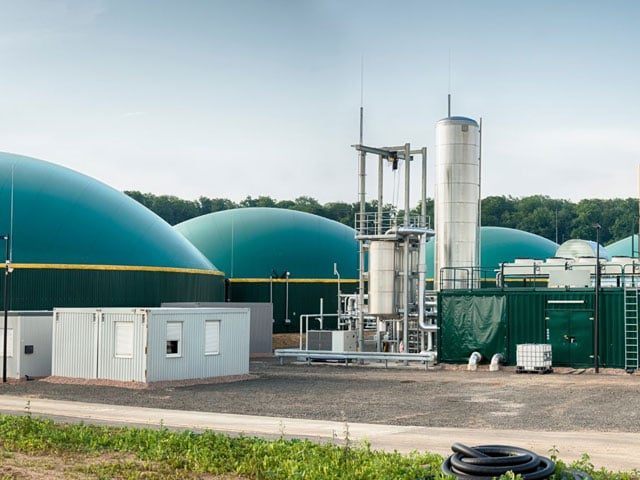Lahore: Punjab Chief Minister Mohsin Naqvi inaugurated Pakistan’s largest biogas plant in Gujjar Colony.
Chief Minister Mohsin Naqvi started the production of compressed biogas plant by pressing the button, after the inauguration, he signed the inauguration plaque and also wrote the date. The Chief Minister also planted a sapling in the biogas plant complex.
6000 cubic meters of gas will be produced per day from the biogas plant established in Gujjar Colony of Lahore. The biogas plant will use 1600 kg of dung per day, from which the same amount of organic fertilizer will be produced per day.
Organic fertilizer produced from Gujjar Colony Biogas Plant will be able to be used by PHA and farmers, Chief Minister Mohsin Naqvi visited different parts of Gujjarpura Biogas Plant.
Talking to the media on this occasion, the Caretaker Chief Minister said that the Gujjar Colony Biogas Plant project was very important, after the completion of the plant, dung visible on the roads will be removed and organic fertilizer will be made from this dung.
He said that the organic fertilizer made from the Gujjar Colony Biogas Plant will also be sold to the public, which will generate substantial revenue for the PHA.
The Chief Minister said that the expansion project of Gujjar Colony Biogas Plant will be started which will benefit the entire area including Gujjar Colony.
Mohsin Naqvi congratulated the team that built the biogas plant and said that may Allah reward them, the whole team did a great job. Provincial Minister Bilal Afzal, Secretary Energy, Secretary Information, CCPO, Commissioner, Deputy Commissioner and other officials were also present on this occasion.
(function(d, s, id){
var js, fjs = d.getElementsByTagName(s)[0];
if (d.getElementById(id)) {return;}
js = d.createElement(s); js.id = id;
js.src = “//connect.facebook.net/en_US/sdk.js#xfbml=1&version=v2.3&appId=770767426360150”;
fjs.parentNode.insertBefore(js, fjs);
}(document, ‘script’, ‘facebook-jssdk’));
(function(d, s, id) {
var js, fjs = d.getElementsByTagName(s)[0];
if (d.getElementById(id)) return;
js = d.createElement(s); js.id = id;
js.src = “//connect.facebook.net/en_GB/sdk.js#xfbml=1&version=v2.7”;
fjs.parentNode.insertBefore(js, fjs);
}(document, ‘script’, ‘facebook-jssdk’));


